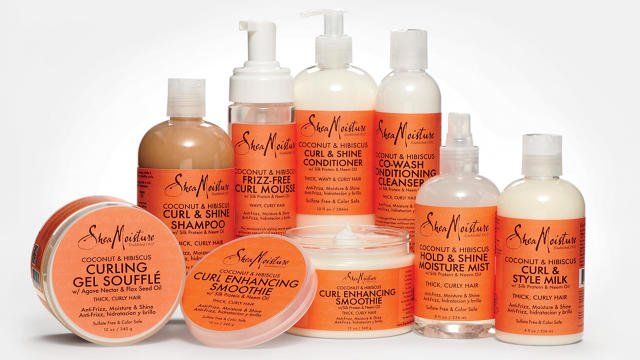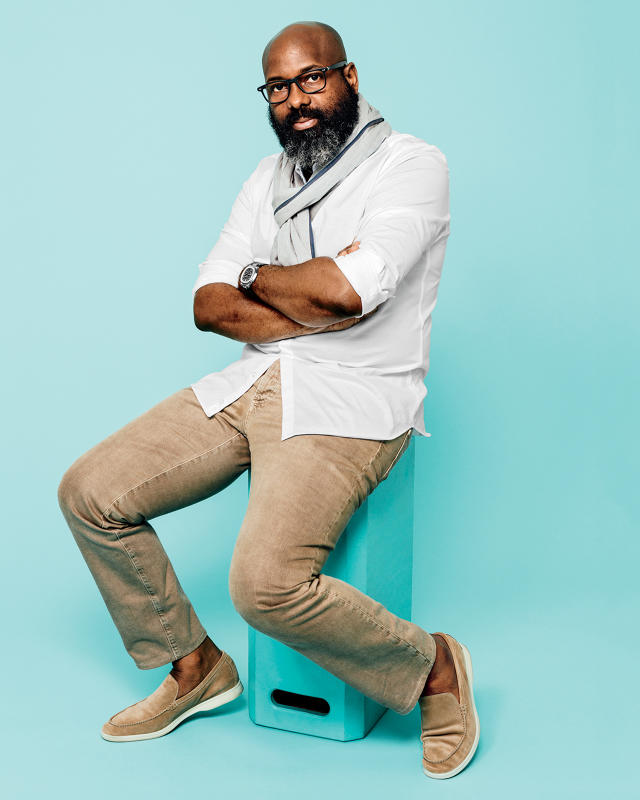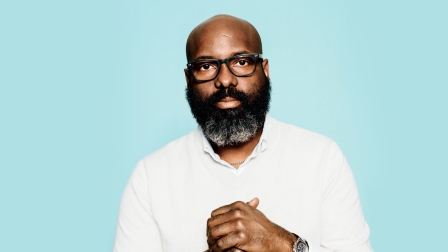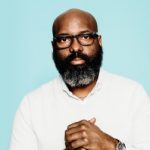How Sundial Brands CEO Richelieu Dennis Is Challenging Segregation In The Beauty Aisle
There are few places in American life where putting up a sign separating ethnicities is considered even remotely acceptable. So why should the beauty aisle at your local drugstore be an exception? There, you’re likely to find that shampoos and moisturizers for African-American women are not located in the main beauty section, but are on separate shelves marked “ethnic.” In April of this year, SheaMoisture, the natural beauty brand of choice for millions of black consumers, decided to rattle those shelves.
SheaMoisture’s #BreakTheWalls campaign, created with Droga5, included an online call to action and its first national TV commercial. The 60-second spot took viewers through a store from the perspective of women of color, depicting how unpleasant the simple act of buying beauty products can be.”Is ‘ethnic’ not beautiful?” the narrator asks. “Am I not beautiful?” The video went viral, garnering 1 million views within the first 24 hours and more than 4 million views over the next three weeks, while the accompanying hashtag earned SheaMoisture 300 million impressions on social media.

The campaign’s architect was Richelieu Dennis, the founder and CEO of Sundial Brands, which includes SheaMoisture, Nubian Heritage, and the recently launched Madam C.J. Walker Beauty Culture, a premium hair-care line exclusively available at Sephora. Sundial pulled in an estimated $200 million in revenue in 2015, an increase of 31% year-over-year. Such growth caught the attention of Bain Capital, which in September 2015 acquired a minority stake in the family-owned company for an undisclosed amount, valuing it at an estimated $700 million.
Bain—and Dennis—are betting on the same thing: That Sundial’s multicultural products will have mass appeal when placed outside the ethnic aisle. And with SheaMoisture recently surpassing Burt’s Bees as the top-selling natural brand in the bath and body category in the U.S., their faith seems well-placed. With the investment from Bain, Dennis expects Sundial’s distribution footprint to grow from its current 25,000 stores, which include CVS, Walmart, and Target, to a total of 45,000 by next year. “People want ingredients they can pronounce, that have a history and a story to them,” says Dennis.
The brand has come a long way from 25 years ago, when Dennis was living in New York City and hawking shea-butter shampoos by the pound on the streets of Harlem. At the time, Dennis was displaced in the United States as civil war broke out in his native Liberia. “Our home was destroyed,” he says. “We had to ask ourselves what to do to survive until we could return.” Dennis, his mother, and a close friend from college turned to the family business: In Africa, his grandmother had supported her children by crafting soaps and lotions from local plants. Using her recipes, Dennis’s family began making natural beauty products in their tiny Queens apartment. Dennis recalls struggling to convince potential buyers that they weren’t just selling snake oil. “There weren’t any natural beauty companies serving multicultural consumers,” he says.
Natural is now becoming the norm. Over the past six years, the natural beauty market has seen double-digit growth; it’s currently worth $33 billion globally, making up 13% of the overall beauty market. Sundial has benefited from this trend and the explosive rise of multicultural beauty: A third of the U.S. population, after all, is not white, and this group has historically spent more on beauty products.
As he grew Sundial from its cramped Queens digs to its current Amityville, New York, headquarters, Dennis anticipated these changes, adding brands and pushing out everything from lipsticks to baby shampoos. (In 2015, he also certified it as a B Corporation, confirming the company’s commitment to giving back to the communities where it sources ingredients; see “It Takes a Village.”) Just as important, he positioned his products not simply as multicultural but cross-cultural: Rather than explicitly targeting black women, the company sells items that can treat a broad range of conditions—from acne to eczema to frizzy hair—that transcend race. “We want women to have options and not be forced into somebody else’s idea of what their beauty needs ought to be,” says Dennis.

It’s an approach with significant potential, especially when it comes to hair care. “Certain products and certain natural ingredients, as well as clinical ingredients, are beneficial for many different hair types,” says Karen Grant, an analyst at market research firm NPD Group. “We need to move away from thinking that this is some little niche market. It’s an untapped opportunity in the hair-care market.”
#BreakTheWalls was the first step. Today, Sundial is working with retail partners such as Target to move its products off specialty shelves, and encouraging them to rethink such aisles altogether. If it all goes according to plan, SheaMoisture will no longer be the dominant brand in the multicultural space, but will be going head-to-head with the likes of Procter & Gamble and L’Oréal. And then the next battle begins.
A version of this article appeared in the September issue of Fast Company magazine.
Fast Company , Read Full Story
(113)













